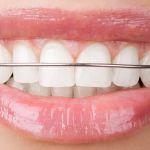How to Prevent and Treat Oral Ulcers: A Complete Guide
- 1- Prevention Tips for Oral Ulcers
- 2- Effective Treatments for Oral Ulcers
- 3- Home Remedies to Soothe Oral Ulcers
- 4- When to Seek Medical Help for Oral Ulcers
1- Prevention Tips for Oral Ulcers
Oral ulcers, often referred to as canker sores, can be incredibly painful and disruptive to daily life. While the exact cause of these ulcers remains unclear, there are several preventive steps you can take to reduce the risk of developing them.
Maintaining good oral hygiene is one of the key prevention strategies. Brushing your teeth gently with a soft-bristled toothbrush and using a non-irritating toothpaste can help minimize irritation in the mouth.
Another effective preventive measure is to avoid triggers such as acidic or spicy foods, which may irritate the sensitive tissue inside the mouth. Additionally, managing stress levels and staying hydrated can help prevent outbreaks.
Finally, if you tend to bite your cheeks or lips often, try being more mindful of this habit to avoid causing damage to the mucous lining in the mouth.
2- Effective Treatments for Oral Ulcers
If you've already developed an oral ulcer, don't worry—there are several treatments available to help relieve pain and promote healing.
Over-the-counter topical treatments such as gels or ointments can provide quick relief. These products typically contain ingredients like benzocaine or hydrocortisone, which help numb the area and reduce inflammation.
In severe cases, a doctor may prescribe a stronger medication, such as a corticosteroid or immune-modulating drug, to help speed up recovery and prevent future outbreaks.
Sometimes, switching to a soft food diet for a few days can prevent further irritation and allow the ulcer to heal more effectively.
3- Home Remedies to Soothe Oral Ulcers
Aside from conventional treatments, many people turn to natural remedies to alleviate the discomfort of oral ulcers. While these options aren't guaranteed to heal the ulcer, they can certainly provide comfort and aid in the healing process.
For example, rinsing your mouth with a mixture of warm water and salt is a popular home remedy known to reduce swelling and disinfect the area. Additionally, applying aloe vera gel directly onto the ulcer may soothe pain and inflammation.
Some people also find relief by swishing with coconut oil or honey, both of which have natural anti-inflammatory and antimicrobial properties that can help speed up healing.
4- When to Seek Medical Help for Oral Ulcers
In most cases, oral ulcers will heal on their own within a week or two. However, if you experience the following symptoms, it may be time to seek medical attention:
- Severe pain that does not respond to over-the-counter treatments
- Ulcers that persist for more than three weeks
- Frequent or recurrent outbreaks
- Swelling in the lymph nodes or fever accompanying the ulcer
A healthcare professional can help identify the cause of the ulcers and recommend appropriate treatments to prevent future occurrences.
Oral ulcers can be a painful nuisance, but with the right treatment and preventive care, they can be managed effectively. If you're tired of dealing with recurring oral ulcers, explore our range of specialized oral care products that can help prevent and treat them. Click here to discover more about our oral care products.







 Bell Road Family Dentistry - Montgomery4.0 (240 review)
Bell Road Family Dentistry - Montgomery4.0 (240 review) Ernstberger Orthodontics5.0 (326 review)
Ernstberger Orthodontics5.0 (326 review) Scott Silverman, MD3.0 (6 review)
Scott Silverman, MD3.0 (6 review) West Jordan Modern Dentistry and Orthodontics4.0 (222 review)
West Jordan Modern Dentistry and Orthodontics4.0 (222 review) Harbor Care Health and Wellness Center4.0 (154 review)
Harbor Care Health and Wellness Center4.0 (154 review) Evergreen Park Dental4.0 (23 review)
Evergreen Park Dental4.0 (23 review) The Importance of Oral Health Education During Pregnancy for a Healthy Pregnancy
The Importance of Oral Health Education During Pregnancy for a Healthy Pregnancy Best Tips for Brushing Your Teeth Properly for Healthy Gums: Essential Techniques for Oral Health
Best Tips for Brushing Your Teeth Properly for Healthy Gums: Essential Techniques for Oral Health Why Skipping Dental Checkups Can Lead to Bigger Oral Health Problems
Why Skipping Dental Checkups Can Lead to Bigger Oral Health Problems Advantages of Porcelain Dental Restorations
Advantages of Porcelain Dental Restorations How Can Diabetes Cause Tooth and Gum Problems? Preventing and Managing Oral Health Issues
How Can Diabetes Cause Tooth and Gum Problems? Preventing and Managing Oral Health Issues Healthy Habits for Promoting Good Oral Health and Hygiene: Tips for a Healthy Smile
Healthy Habits for Promoting Good Oral Health and Hygiene: Tips for a Healthy Smile